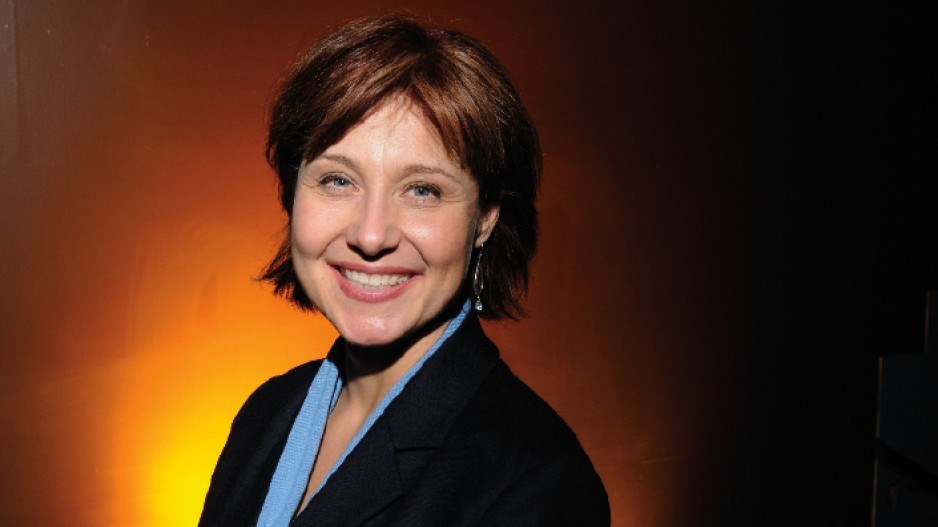Q: What's your plan to improve B.C.'s business and investment climate?
A: Short answer: maintain our triple-A credit rating, which is crucial for attracting investment, as you know. … Keep our personal and corporate income taxes low. That's really important for attracting talent. We need to continue to reduce regulation. … Balance our budget. … The last one is to continue to do trade missions to Asia.
Q: You mentioned cutting taxes, but you've raised the corporate [income] tax.
A: We're now second in the country. Alberta and New Brunswick are tied for No. 1 on corporate income tax, B.C. is No. 2. It was a very difficult decision to make, but it was necessary to balance our budget, and balancing a budget matters because, if you don't balance your budget, you lose your credit rating.
Q: A lot of the criticism over your budget was that it would be balanced by selling public assets.
A: $675 million over three years in a $45 billion operation to sell off surplus properties – government sells assets every year. We were a bit more aggressive about it, but it's not something government doesn't do all the time.
Q: Aside from that, how else will you tackle the deficit?
A: Growing our economy. Around the world you see economies shrinking, and you see states in the U.S. stumbling and literally going broke. Our economy grew last year, because we've kept taxes low and because we've been aggressive about attracting investment to our province.
Q: You say expanding the economy, but B.C. is blessed because of natural gas and other natural resources. What other areas of the economy will you focus on?
A: I'd just like to point out, natural gas prices went down. So we're blessed with a valuable resource, but until we finish our plan to export it, it's not the valuable asset that oil is in Alberta. The minute we start to export it, it starts to become equal in value to the oilsands. Forestry expanded this year. … Mining has done very, very well … . We are the third largest clean-tech sector in the world, after Germany and California, and our tech sector is growing by leaps and bounds.
Q: Given the recent disappointing numbers, what gives you the confidence that it's going to come back up?
A: We succeeded in the first year.
Q: Can you be more specific?
A: We had a plan, we stuck with the plan and we delivered the best results in the country. So, if it's working? Stick with it. … I'm very hopeful about the growth that we'll continue to see in forestry, and that we're going to continue to see in mining and technology.
Q: What strategies will you use to address B.C.'s skills crunch?
A: There are two halves to skills training. The first half is the skills training itself, which we absolutely have to stay focused on. We brought out a $75 million skills training plan, which is focused on the trades. … [The second half] is you want to be training them for jobs in B.C., not Alberta. [Adrian Dix's] plan would be, I guess, to train people up so they can go work outside the province.
Q: What changes in immigration and temporary foreign workers [TFW] policies will you be pushing for federally to meet B.C.'s labour needs?
A: That we get the same deal as Quebec has, that B.C. gets to run immigration. … [The TFW program] is a federal program, and I recognize it hasn't worked as well as any of us would have liked. They're reviewing it, so I hope they find a way to get it right.
Q: How would you accelerate the resolution of First Nations treaties?
A: We have accelerated it. We set a goal of 10 economic development agreements with First Nations by 2015. We've already exceeded that. Our approach is unique in the country, [including] First Nations in economic development because we recognize that when First Nations decide they want to be part of a project, they're the biggest advocates for economic development.
Q: Given surging health-care and education costs, where will you cut to rein in spending?
A: The No. 1 place where government spends money in health care is wages.
Q: So you'd cut wages?
A: No, but not increase them so quickly. This is a stark philosophical difference between me and Dix, because we're adding $2.4 billion over the next three years in ... health care, but that represents modest growth.
Q: What would you do to attract offices and investment to B.C.?
A: We are focused on Asia and India to attract those head offices here. … We are closer to the economic heartbeat of the world than anywhere else, so our proximity's a huge advantage for us. So are our tax rates and triple-A credit rating. International investors want to be in a place that's stable and predictable. •




